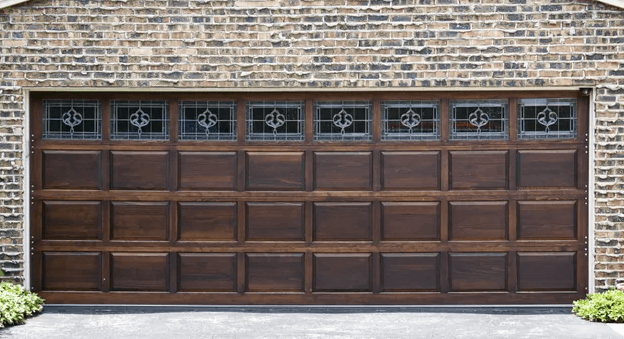Top Garage Door Maintenance Tips

Introduction
Your garage door is one of the most crucial components of your home. Not only does it provide security and enhance the curb appeal of your property, but it also ensures easy access to your garage space. However, like any other mechanical system, your garage door requires regular maintenance to function efficiently. Without proper upkeep, you might face inconvenient breakdowns, costly repairs, or even compromise your home’s security. In this article, we will explore the top garage door maintenance tips that every homeowner should know to keep their garage doors in optimal condition.
Importance of Regular Garage Door Maintenance
Regular maintenance of your garage door is not just about preventing inconvenience; it’s also about safety and cost-effectiveness. A well-maintained garage door can last for many years, operate smoothly, and keep you safe from potential accidents. Ignoring routine maintenance can lead to malfunctioning components, which may cause the door to become unbalanced, noisy, or even jammed. Moreover, neglected maintenance can void warranties and lead to expensive repair bills. Therefore, understanding and implementing the right maintenance practices is crucial for every homeowner.
Inspecting the Garage Door’s Components
One of the first steps in garage door maintenance is a thorough inspection of all its components. This process involves checking the door’s springs, cables, rollers, and other moving parts for signs of wear and tear. Look for frayed cables, loose bolts, or rusted parts that might need attention. It’s also essential to examine the garage door opener, ensuring that the motor and other electrical components are functioning correctly. Regular inspections help you identify potential problems before they escalate, allowing you to address them proactively.
Lubrication of Moving Parts
Lubrication is key to ensuring that your garage door operates smoothly and quietly. All the moving parts, including the rollers, hinges, tracks, and springs, should be lubricated at least twice a year. Use a high-quality garage door lubricant or a silicone-based lubricant, as these products reduce friction and prevent metal parts from rusting. Be cautious not to over-lubricate, as this can attract dust and debris, leading to more issues. Proper lubrication not only extends the life of your garage door but also enhances its performance, reducing noise and ensuring smooth operation.
Testing the Garage Door Balance
A properly balanced garage door is crucial for its longevity and smooth operation. An unbalanced door puts unnecessary strain on the opener, leading to premature wear and potential safety hazards. To test the balance, disconnect the garage door opener by pulling the release handle and manually lift the door halfway. If the door stays in place, it is well-balanced. However, if it moves up or down, the door is unbalanced and requires adjustment. Balancing a garage door can be complex and may require professional assistance, especially if the springs need adjustment.
Checking and Replacing Weatherstripping
Weatherstripping is a crucial component that prevents drafts, water, and debris from entering your garage. Over time, weatherstripping can become brittle, cracked, or worn out, compromising its effectiveness. Regularly inspect the weatherstripping at the bottom and sides of your garage door. If you notice any signs of damage, replace the weatherstripping promptly. Installing new weatherstripping is a relatively simple task that can significantly improve your garage’s insulation, keeping it more energy-efficient and protecting your belongings from external elements.
Cleaning the Garage Door
Cleaning your garage door is not just about aesthetics; it’s also about maintaining the door’s material and finish. Whether your garage door is made of wood, steel, or aluminum, regular cleaning can prevent the buildup of dirt, grime, and rust. Use a mild detergent mixed with water to clean the door’s surface, and avoid using abrasive cleaners that can damage the finish. After washing, rinse the door thoroughly with clean water and dry it with a soft cloth. Regular cleaning helps maintain the door’s appearance and prevents corrosion, extending its lifespan.
Tightening Loose Hardware
The constant movement of the garage door can cause bolts, screws, and other hardware to loosen over time. Loose hardware can lead to misalignment, noisy operation, and even accidents. As part of your routine maintenance, inspect all the hardware, including brackets, hinges, and tracks, and tighten any loose components. Make sure to use the appropriate tools and avoid over-tightening, as this can strip the threads or damage the parts. Keeping the hardware tight ensures that your garage door operates smoothly and safely.
Testing the Auto-Reverse Feature
The auto-reverse feature is a critical safety mechanism that prevents the garage door from closing on objects or people. This feature uses sensors to detect obstructions and automatically reverses the door’s direction if something is in the way. To test this feature, place an object, such as a block of wood, in the door’s path and attempt to close it. The door should immediately reverse when it contacts the object. If it does not, the sensors may need cleaning or realignment, or the feature may require professional adjustment. Ensuring that the auto-reverse feature is working correctly is vital for the safety of everyone in your household.
Adjusting the Garage Door Opener Sensitivity
The sensitivity of your garage door opener determines how much force is required for the door to reverse its direction. If the sensitivity is set too high, the door may not reverse when it encounters an obstacle, posing a safety risk. Conversely, if it’s set too low, the door might reverse even when there’s no obstruction. Most garage door openers have a sensitivity adjustment screw that can be used to fine-tune the settings. Consult your owner’s manual for the correct procedure, and test the door several times to ensure it’s functioning properly. Properly adjusted sensitivity enhances both the safety and functionality of your garage door.
Checking the Garage Door’s Balance
The balance of your garage door is another essential factor that influences its operation and longevity. An unbalanced door can strain the opener and lead to uneven wear on the door’s components. To check the balance, disconnect the opener by pulling the release handle and manually lift the door halfway. If it stays in place, the door is balanced; if it falls or rises, it’s unbalanced. An unbalanced garage door often indicates issues with the springs or other critical components, which should be addressed by a professional to avoid further damage or accidents.
Inspecting the Garage Door’s Springs
Garage door springs are under significant tension and are crucial for the door’s operation. Over time, springs can wear out or break, making the door difficult to open or close. Regularly inspect the springs for signs of rust, wear, or damage. If you notice any issues, it’s important to address them immediately. Replacing garage door springs is a dangerous task that requires specialized tools and expertise, so it’s best to hire a professional for this job. Regular inspection and maintenance of the springs can prevent sudden failures and ensure the door operates safely and smoothly.
Maintaining the Garage Door Tracks
The tracks on which your garage door runs are vital for its smooth operation. Over time, dirt, dust, and debris can accumulate in the tracks, causing the door to become misaligned or difficult to operate. Regularly clean the tracks with a damp cloth to remove any buildup, and use a level to ensure they are properly aligned. If the tracks are bent or damaged, they may need to be adjusted or replaced. Proper maintenance of the tracks ensures that your garage door operates smoothly and reduces the risk of accidents.
Examining the Garage Door Cables
The cables on your garage door work alongside the springs to lift and lower the door. These cables are under high tension and can fray or snap over time. Regularly inspect the cables for any signs of wear or damage, such as fraying or corrosion. If you notice any issues, it’s crucial to have them repaired or replaced by a professional. Attempting to fix garage door cables on your own can be extremely dangerous due to the tension they are under. Regular inspection and maintenance of the cables can prevent accidents and ensure your garage door operates reliably.
Testing the Door’s Operation
After performing all the necessary maintenance tasks, it’s important to test the garage door’s operation to ensure everything is working correctly. Open and close the door several times, listening for any unusual noises and observing its movement. The door should operate smoothly without jerking, grinding, or sticking. If you notice any issues, recheck the components you’ve worked on, or consult a professional for further inspection. Regular testing ensures that your garage door remains in good working condition and helps identify any problems before they become serious.
Setting a Maintenance Schedule
Regular maintenance is the key to ensuring your garage door’s longevity and smooth operation. To keep everything in order, it’s helpful to set a maintenance schedule. Depending on your garage door’s usage and environmental conditions, you may need to perform certain tasks more frequently. For example, lubricating the moving parts and inspecting the door’s balance might be necessary every few months, while a more thorough inspection can be done annually. Keeping a maintenance log can also help you track when tasks were last performed and what needs attention. A well-organized maintenance schedule ensures that no aspect of your garage door is overlooked, keeping it in top condition year-round.
Professional Garage Door Maintenance Services
While regular DIY maintenance is crucial, there are times when professional services are necessary. Professionals have the tools, experience, and expertise to handle complex repairs and adjustments that may be beyond the scope of regular homeowners. For instance, tasks like spring replacement, track realignment, or opener troubleshooting often require specialized knowledge and equipment. Scheduling an annual inspection by a professional can also help catch potential issues before they become major problems, saving you money in the long run. Investing in professional maintenance services ensures that your garage door operates safely and efficiently for years to come.
Garage Door Safety Tips
Beyond maintenance, safety is a critical aspect of garage door ownership. Always keep the remote control out of reach of children and ensure that the wall-mounted switch is installed at a height that prevents accidental activation. Regularly test the auto-reverse feature to make sure it’s working properly, and never attempt to adjust or repair garage door springs or cables yourself. If your garage door is older, consider upgrading to a model with the latest safety features, such as rolling code technology, which prevents code theft. By following these safety tips, you can protect your family and ensure the safe operation of your garage door.
Common Garage Door Problems and Solutions
Even with regular maintenance, garage doors can encounter problems. Common issues include noisy operation, the door not closing fully, or the door becoming stuck. Noisy operation is often due to a lack of lubrication or loose hardware, which can be easily fixed with regular maintenance. If the door doesn’t close fully, check the sensors for obstructions or misalignment. A stuck door may indicate issues with the tracks, rollers, or opener. Identifying the root cause of these problems and addressing them promptly can prevent further damage and ensure that your garage door continues to operate smoothly.
Signs Your Garage Door Needs Replacement
Despite regular maintenance, there comes a time when repairs are no longer sufficient, and a replacement is necessary. Signs that your garage door might need replacing include frequent breakdowns, excessive noise, or visible damage such as cracks or rust. If the door is more than 15-20 years old, it may also lack modern safety features or be less energy-efficient. A new garage door not only improves the functionality of your garage but also enhances your home’s curb appeal and security. When considering replacement, consult with a professional to explore your options and choose a door that meets your needs and budget.
FAQs
How often should I lubricate my garage door? Lubricate your garage door’s moving parts at least twice a year, or more frequently if you notice any noise or stiffness during operation.
Can I replace garage door springs myself? Replacing garage door springs is a dangerous task due to the high tension they are under. It’s recommended to hire a professional for this job to avoid injury.
What should I do if my garage door won’t close? Check the sensors for any obstructions or misalignment, and ensure that the remote control batteries are working. If the problem persists, it may require professional inspection.
Why is my garage door making noise? Noise can be caused by a lack of lubrication, loose hardware, or worn-out rollers. Regular maintenance can help reduce noise, but if it persists, consult a professional.
How can I improve the energy efficiency of my garage door? Installing weatherstripping, insulating the door, and ensuring proper maintenance can improve your garage door’s energy efficiency, keeping your garage warmer in the winter and cooler in the summer.
Is it worth investing in a professional garage door maintenance service? Yes, professional maintenance services can address complex issues that DIY maintenance might miss, ensuring the longevity and safe operation of your garage door.
Conclusion
Maintaining your garage door is essential for ensuring its longevity, safety, and smooth operation. By following these top garage door maintenance tips, you can prevent costly repairs, avoid inconvenient breakdowns, and keep your garage door functioning at its best. Whether it’s regular lubrication, inspecting the components, or testing the safety features, each task plays a crucial role in maintaining the overall health of your garage door. Remember that while DIY maintenance is important, don’t hesitate to seek professional help for more complex tasks. With the right care and attention, your garage door will serve you reliably for many years to come.





